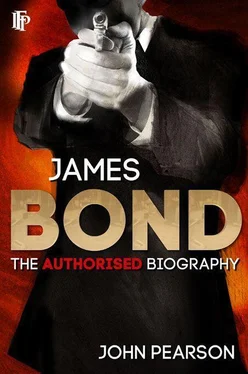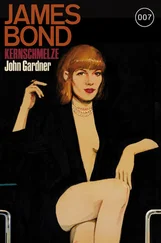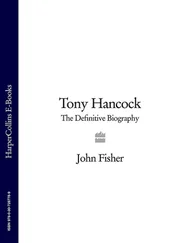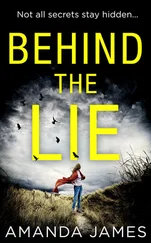John Pearson - James Bond - The Authorised Biography
Здесь есть возможность читать онлайн «John Pearson - James Bond - The Authorised Biography» весь текст электронной книги совершенно бесплатно (целиком полную версию без сокращений). В некоторых случаях можно слушать аудио, скачать через торрент в формате fb2 и присутствует краткое содержание. Год выпуска: 2008, ISBN: 2008, Издательство: Random House, Жанр: Шпионский детектив, на английском языке. Описание произведения, (предисловие) а так же отзывы посетителей доступны на портале библиотеки ЛибКат.
- Название:James Bond: The Authorised Biography
- Автор:
- Издательство:Random House
- Жанр:
- Год:2008
- ISBN:9780099502920
- Рейтинг книги:4 / 5. Голосов: 1
-
Избранное:Добавить в избранное
- Отзывы:
-
Ваша оценка:
- 80
- 1
- 2
- 3
- 4
- 5
James Bond: The Authorised Biography: краткое содержание, описание и аннотация
Предлагаем к чтению аннотацию, описание, краткое содержание или предисловие (зависит от того, что написал сам автор книги «James Bond: The Authorised Biography»). Если вы не нашли необходимую информацию о книге — напишите в комментариях, мы постараемся отыскать её.
James Bond: The Authorised Biography — читать онлайн бесплатно полную книгу (весь текст) целиком
Ниже представлен текст книги, разбитый по страницам. Система сохранения места последней прочитанной страницы, позволяет с удобством читать онлайн бесплатно книгу «James Bond: The Authorised Biography», без необходимости каждый раз заново искать на чём Вы остановились. Поставьте закладку, и сможете в любой момент перейти на страницу, на которой закончили чтение.
Интервал:
Закладка:
Fleming has described the sequence of events – the meeting with the sinister, bronzed lady-killer, Count Lippe, in the treatment room at Shrublands. Bond's recognition of the tattoed ‘Red Lightning Tong’ sign on his arm, and then the hideous attempt Lippe made to have Bond literally torn apart on the traction machine. This, in turn, led to Bond's first encounter with that extraordinary criminal genius, Ernst Stavro Blofeld – killer, capitalist and founder-chairman of Spectre, ‘the Special Executive for Counterintelligence, Terrorism, Revenge and Extortion’.
It was Herr Blofeld who had masterminded the hi-jacking of the NATO bomber and using its atomic bomb to extort ?100 million from the Western European governments. Bond had the task of tracking Blofeld's minions to the Bahamas and recovering the bomb. This involved the famous underwater battle with Blofeld's man, Emilio Largo, and his accomplices. It was this battle which undoubtedly did save both Nassau and Miami from the atomic holocaust Blofeld had threatened. Blofeld, of course, survived, but Spectre almost fell apart, and Bond had the satisfaction of knowing he had saved the British taxpayer ?100 million, and even worse extortions from the power-mad Blofeld.
But once again for Bond success had to be its own reward. There were no medals, no citations for his bravery. He was used to this, but he admits that he did find M.'s behaviour strange. There was no word of congratulation when he returned. Even the personal note of thanks from the Prime Minister to Bond aroused no comment from the steely martinet, and Bill Tanner told Bond later that M. had vetoed the P.M.'s suggestion of a private lunch at Downing Street. M. had apparently ruled that it would be ‘quite improper’ and that it would set what he called ‘dangerous precedents’ for members of the Secret Service to have any contact with politicians. (Bond says that he was secretly relieved.)
Late in the autumn of 1960, things started going strangely wrong for Bond. His carefree years were over.
Most of the trouble lay not in him but in the Secret Service. During this period it was under fire from the politicians and there was fresh talk of purges from security. This had produced the customary irritated reaction from M. He was on his guard and there was talk now of disbanding the 00 section. It had come under frequent criticism as a source of provocation to the enemy, and M. was tired of defending it. These rumours naturally worried Bond: without his 00 rating, it was doubtful whether he would wish to stay within the Secret Service. Then on top of this came the big re-shuffle at Headquarters just before Christmas. For Bond, a true conservative at heart, the shake-up was more disturbing than he cared to admit.
M.'s office was moved up from the sixth to the seventh floor, and Bond, to his horror, found himself relegated to ‘a small, cream-painted, hencoop of a place’ up on the eighth. In the circumstances, the move seemed ominous. Then, just a few days later, the devoted Ponsonby announced that she was leaving to get married to her mysterious broker boyfriend from the Baltic Exchange. For Bond, who had always liked to think that she was secretly in love with him, this was ‘the last bloody straw’.
That Christmas he was champing for a long, involved assignment, preferably somewhere warm, which would keep him out of range of M. and Regent's Park as long as possible. Instead he found himself dispatched to Canada.
It was the sort of dirty, brief assignment Bond had come to loathe – a trip to Toronto to protect a man called Boris from a hired assassin. Boris had defected from the Soviet Union, and, after giving his secrets to the British, had been settled in Toronto. The Russian K.G.B. had recently discovered his address and made a deal with the still functioning Spectre network to destroy him.
Bond worked efficiently, but without much relish, finding the would-be murderer (an ex-Gestapo man called Uhlmann), taking the Russian's place on the night of the killing, and then quite calmly shooting Uhlmann in a gun-fight. Bond played his part like the professional he was, but it left him mildly disgusted with his calling. He liked to think that he was something more than a salaried trigger man for the British Secret Service. But it was obviously too much to hope for another of those missions like the Thunderball affair which gave him the luxury of feeling that his work had real value to society.
M. seemed obsessed with Spectre and with Blofeld, and on Bond's return to London insisted firmly that from now on they were to be his sole concern. Bond tried to argue. M. was unsympathetic.
Throughout that spring and early summer Bond persevered – still without success. He was convinced by now that Blofeld must have died and that M., for some perverse reason of his own, was keeping him at this pointless drudgery. Perhaps he wanted to deflate him after the success of the Thunderball affair. Perhaps … As he said to the sympathetic Bill Tanner during one of his periodic moans, ‘the trouble with the old man is that he's become so odd and difficult that one just never knows what he's up to.’
Tanner nodded wearily. ‘And to make it worse,’ he replied, ‘he still has an infuriating habit of sometimes being right.’
Another source of irritation to James Bond cropped up then. Urquhart reminded him that it was time that Fleming wrote another book. This had become an annual event. The publishers expected it. The public would think something had gone wrong if a new book failed to appear. Bond replied curtly that his life had now become so dull that there was nothing that would make a book.
This time the argument was carried up to M. He still seemed anxious for the Bond books to continue. Urquhart had told him that what he called ‘the James Bond cult’ was catching on, and that there was talk of making a film now of the famous British agent. Bond hadn't heard and was horrified. Not so M.
‘One must be forward-looking in such matters, 007,’ he insisted. ‘Forward-looking’ was a phrase that he had recently taken to using. Bond mistrusted it. But M. appeared pleased that it was a British agent – and not an American or a French one – who was involved. Something else had pleased him too. ‘Look at this,’ he said to Bond, and pushed a magazine across the desk. It was the current issue of the American Life Magazine, and somebody in the press department had underlined the article. It was by the White House correspondent, Hugh Sidey, and it listed the ten favourite books of President John F. Kennedy. Number six in the list, after the Charterhouse of Parma , was a James Bond book – From Russia With Love . M. was delighted.
But even M.'s enthusiasm was unable to produce a subject for a further book. ‘It had been,’ said Bond somewhat bitterly, ‘a fallow year.’ And then another complication cropped up which seemed to end all chance of a fresh Bond adventure for that year. That April Fleming had had a heart attack, and even as M. spoke, he was in the London Clinic. When James Bond heard this he went to visit him.
Fleming appeared quite cheerful. He and Bond laughed about the Kennedy enthusiasm for From Russia With Love and Fleming seemed relieved not to have to write another James Bond book that year. Despite all this, Urquhart was not so easily diverted from his purpose. The same April he flew specially to Canada and it was while he was there that he found out about the girl called Vivienne Michel. Bond hadn't mentioned her in his departmental report on the Toronto job, although he did briefly mention his involvement with two gangsters in the motel she ran outside Toronto. This had no bearing on Bond's mission. The gangsters were two thugs attempting to extort money from the girl. Bond dealt with them, and handed the case over to the local police.
Читать дальшеИнтервал:
Закладка:
Похожие книги на «James Bond: The Authorised Biography»
Представляем Вашему вниманию похожие книги на «James Bond: The Authorised Biography» списком для выбора. Мы отобрали схожую по названию и смыслу литературу в надежде предоставить читателям больше вариантов отыскать новые, интересные, ещё непрочитанные произведения.
Обсуждение, отзывы о книге «James Bond: The Authorised Biography» и просто собственные мнения читателей. Оставьте ваши комментарии, напишите, что Вы думаете о произведении, его смысле или главных героях. Укажите что конкретно понравилось, а что нет, и почему Вы так считаете.












